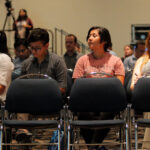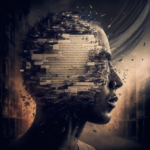Hawisher’s and Selfe’s digital literacy study
What does literacy mean to you? Before reading the two articles, I believed that literacy was the ability to read and write, as Google suggests. After reading Hawishers’ and Selfe’s article, I have come to realize the term literacy has a much more profound meaning because it is not just about knowing how to read a book or write. There are many different types of acknowledgment of literacy. In Hawisher’s and Selfe’s article, we see the progression and adaption of digital literacy in different races, social classes, and cultures. The cultural ecology presented in this article demonstrates the importance of literacy in the digital world because as society evolves into a broader spectrum of technological advances, the ability, and mindset of people experiencing this change must evolve as well. The article demonstrates different case scenarios, one of them Melissa Pearson’s experience. A young girl growing up in the ‘1960s when computers were starting to become a major force. Even though she was academically literate, it wasn’t until twenty years later that she had access to computers in her banking position and became digitally literate. What I admire about Pearson’s life is the courage she had when returning to school to finish her career. Her hunger for digital and academic literacy is what paved the way for her future. Now I answer my question based on this article. To me, literacy is fluency in adapting to the unknown. Literacy involves ability, but the ability has to go hand in hand with willingness. These are my thoughts about this article, but literacy can mean something different to you.
James Paul Gee’s Discourse theory
James Paul Gee’s article has another outlook on literacy and linguistics. According to Gee, the studies of literacy are intertwined with language because both terms go hand in hand with fluency. Gee suggests that literacy/ linguistics is more than just how one writes, uses grammar, or reads. Language is the fluency one has with words and how individuals use context in different case scenarios. According to his theory, proper speech and good grammar do not make people necessarily fluent in literacy. Gee infers that what is most important is the practice of Discourse. Gee defines Discourse as actions of (writing) -doing-being-valuing-believing combinations. He calls Discourse an “identity kit” because it creates a social identity that completes costume and instructions to take on a particular role that others will recognize (Gee.) The factor that surprised me about the article is that Gee states, individuals will reach Discourse fluency by mastering it on their own. Discourse cannot be taught, it has to be mastered by the social practices to which individuals are exposed. The type of idea the Discourse theory gave me was “ fake it till you make it” because it reminds me of how I escalated my job position. I memorized medical diagnoses, learned how to use medical tools, and interacted with doctors, but these actions did not make me a doctor. I can tell you that it did help me get into the position I was looking into, but it did not make me a physician. I am not saying I have mastered Discourse fluency. I am saying that Gee is partially right. People need more than just language skills in society to come afloat.





Leave a Reply